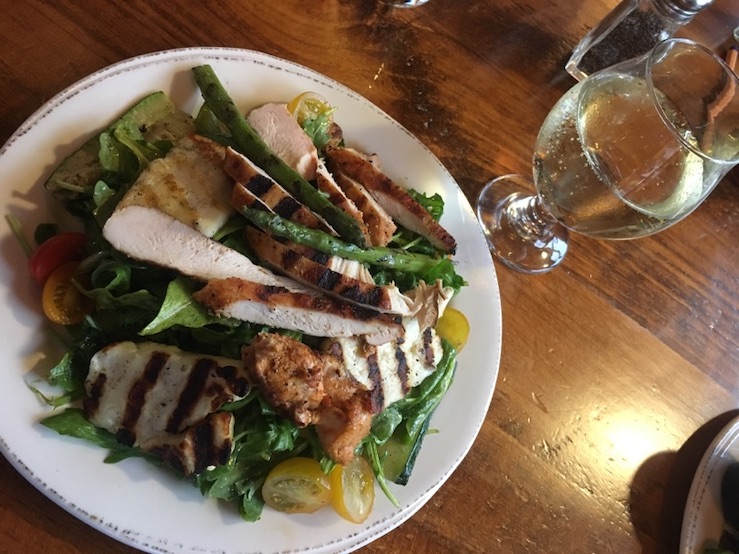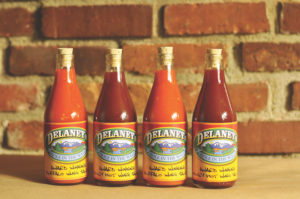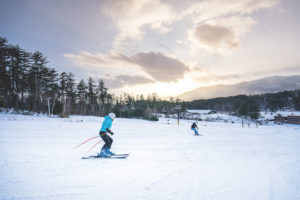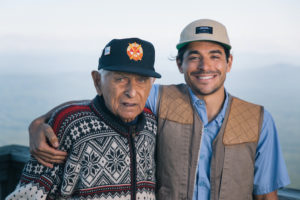
We all know après ski really is an excuse to get together with friends and celebrate a day on the slopes with burgers, deep-fried wings and pints of New England’s finest IPAs. But when it comes time to keep up with your fastest friends on the uphill or even the downhill (and still feel good), it might be worth thinking twice before chasing that midday chicken finger basket down with a Budweiser.
Don’t worry — you don’t have to eat raw broccoli and drink kale smoothies every day to stay fit and energized all day.
“Skiing and snowboarding are physically demanding sports that burn a lot of calories,” says Lisa Cushing, an avid snowboarder and physician assistant at White Mountain Community Health Center. “It’s important to fuel up with a breakfast that will help get you from first chair to last chair. I recommend starting the day off with a combination of protein and healthy fats, which are not easily broken down. This means you’ll have a slow release of energy that will last for hours.”
Cushing suggests staying away from foods that will spike your blood sugar and leave you feeling tired and hungry shortly after. Substitute your breakfast bacon for eggs and yogurt or avocado on whole grain toast.



